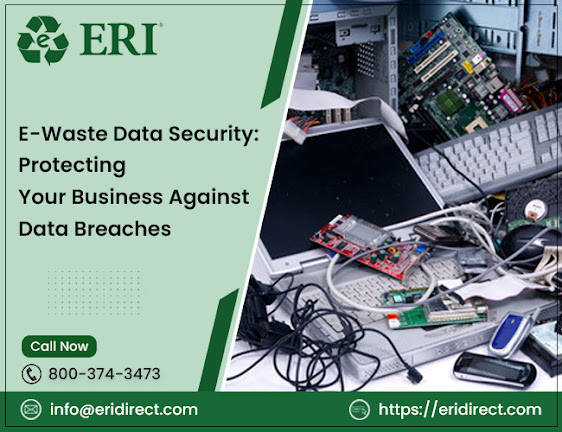In our fast-paced digital age, electronic devices have become an integral part of our lives. However, as we embrace the latest gadgets, it's crucial to consider the environmental impact of electronic waste. This blog is your guide to responsible electronic recycling practices, with a focus on data destruction, local electronic recycling, and the overall importance of electronic recycling.
The Environmental Toll of Electronic Waste
With the rapid evolution of technology, the life cycle of electronic devices is growing shorter, contributing to a surge in electronic waste. From old smartphones to outdated laptops, improperly discarded gadgets can harm the environment and pose risks to human health. Responsible electronic recycling is the key to mitigating these environmental hazards.
1. Data Destruction: Protecting Your Digital Footprint
When parting ways with electronic devices, safeguarding your personal and sensitive data is paramount. Data destruction is a critical aspect of responsible electronic recycling. Before recycling your gadget, ensure that all personal information is securely wiped. Many reputable electronic recycling services offer data destruction as a part of their comprehensive recycling process, giving you peace of mind that your digital footprint is erased.
2. Local Electronic Recycling: Supporting Sustainable Practices
Supporting local electronic recycling initiatives is an excellent way to contribute to sustainable practices. Local electronic recycling not only reduces the carbon footprint associated with transportation but also supports the growth of environmentally conscious businesses in your community. Explore local recycling centers or electronic recycling events to conveniently dispose of your gadgets while promoting sustainable practices at the grassroots level.
Responsible Electronic Recycling Practices
3. Choose Certified Recyclers: Ensuring Environmental Compliance
Opting for certified electronic recyclers is crucial to ensuring that your gadgets are processed in an environmentally compliant manner. Look for certifications such as R2 (Responsible Recycling) or e-Stewards, which signify adherence to strict environmental and ethical standards. Certified recyclers prioritize proper handling, disposal, and recycling of electronic waste.
4. Extended Producer Responsibility (EPR): Holding Manufacturers Accountable
Advocate for extended producer responsibility (EPR) to encourage manufacturers to take responsibility for the end-of-life disposal of their products. EPR programs promote sustainable product design and responsible electronic recycling practices by placing the onus on manufacturers to manage the environmental impact of their devices.
Conclusion
As we strive for a more sustainable future, responsible electronic recycling practices play a crucial role in reducing the environmental footprint of our digital lifestyles. From prioritizing data destruction to actively participating in local electronic recycling initiatives, each individual's efforts contribute to a more sustainable and eco-friendly tech landscape. Embrace green gadgets and be a steward of the environment by incorporating responsible electronic recycling practices into your tech-savvy lifestyle.
.jpeg)
.jpeg)
.jpeg)



